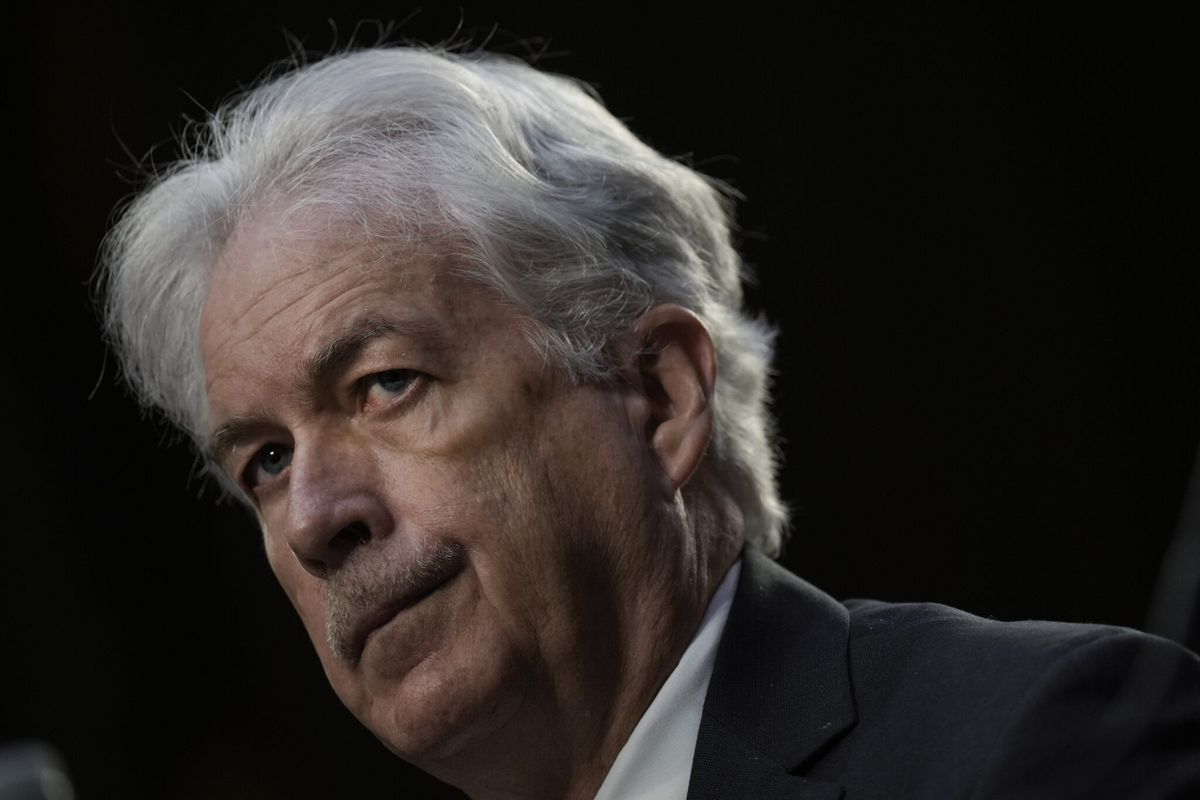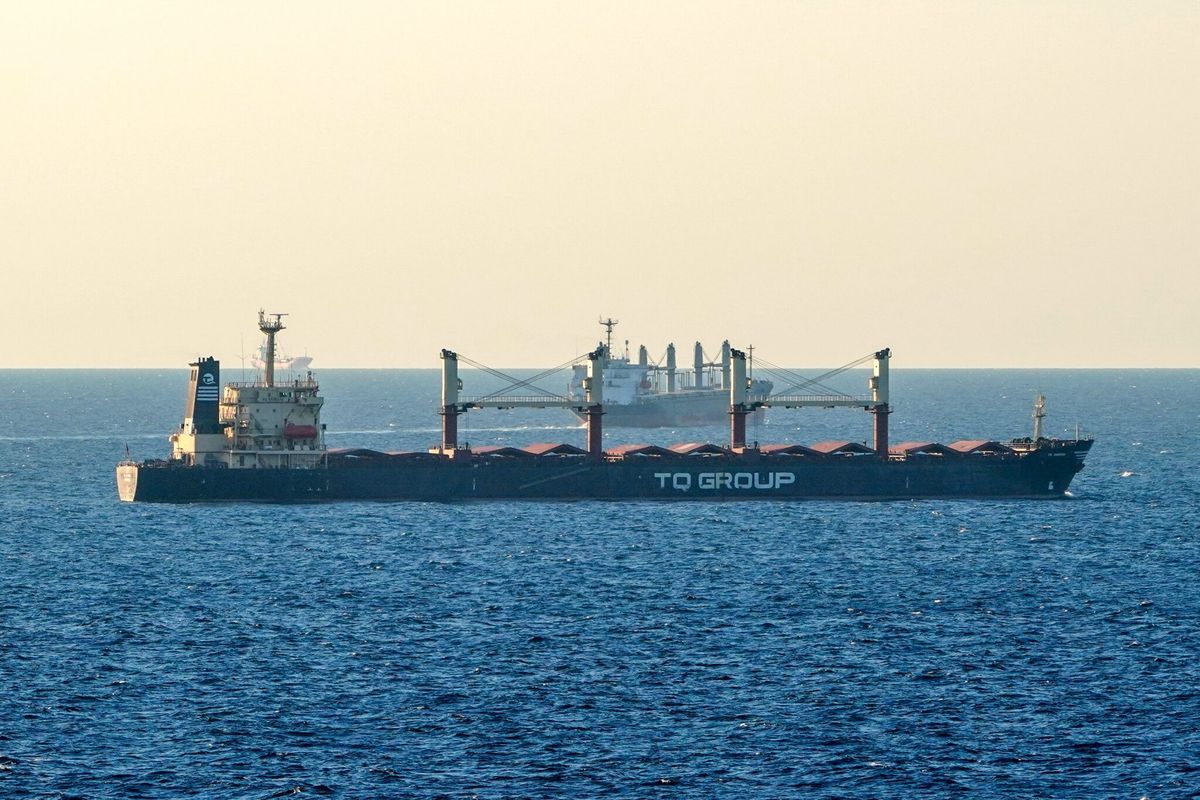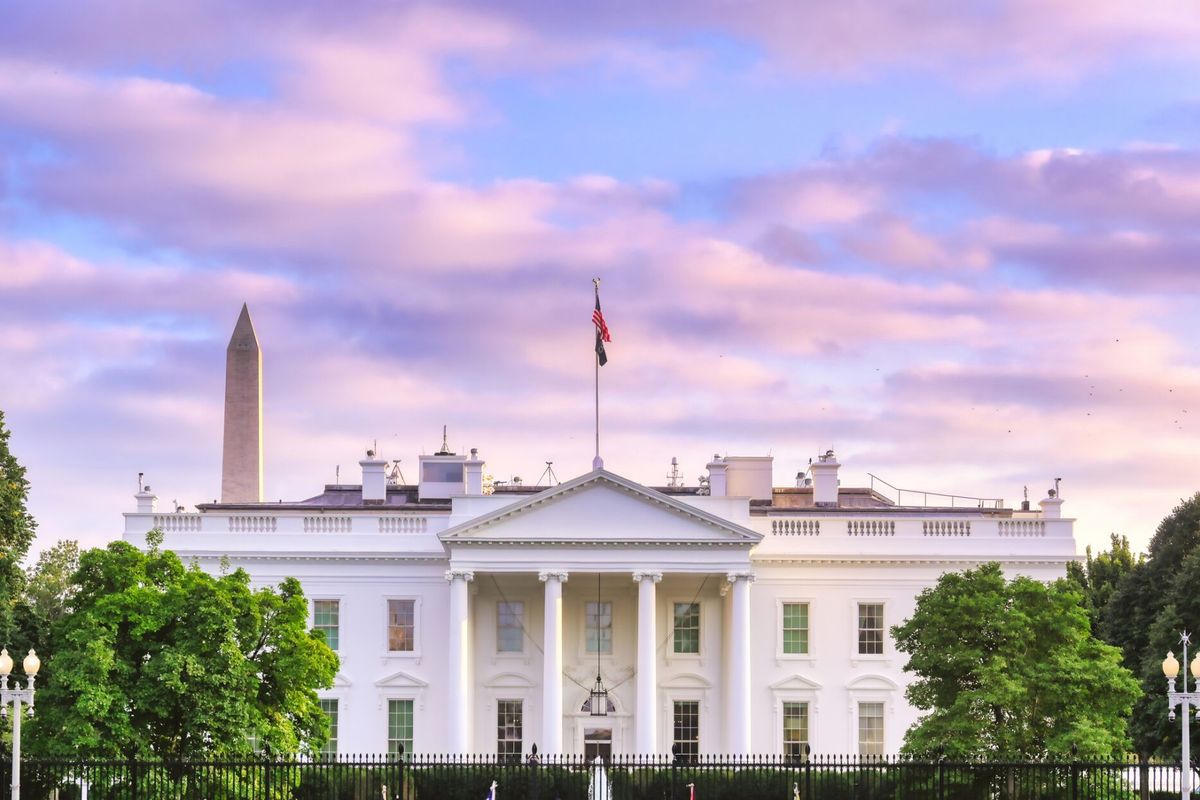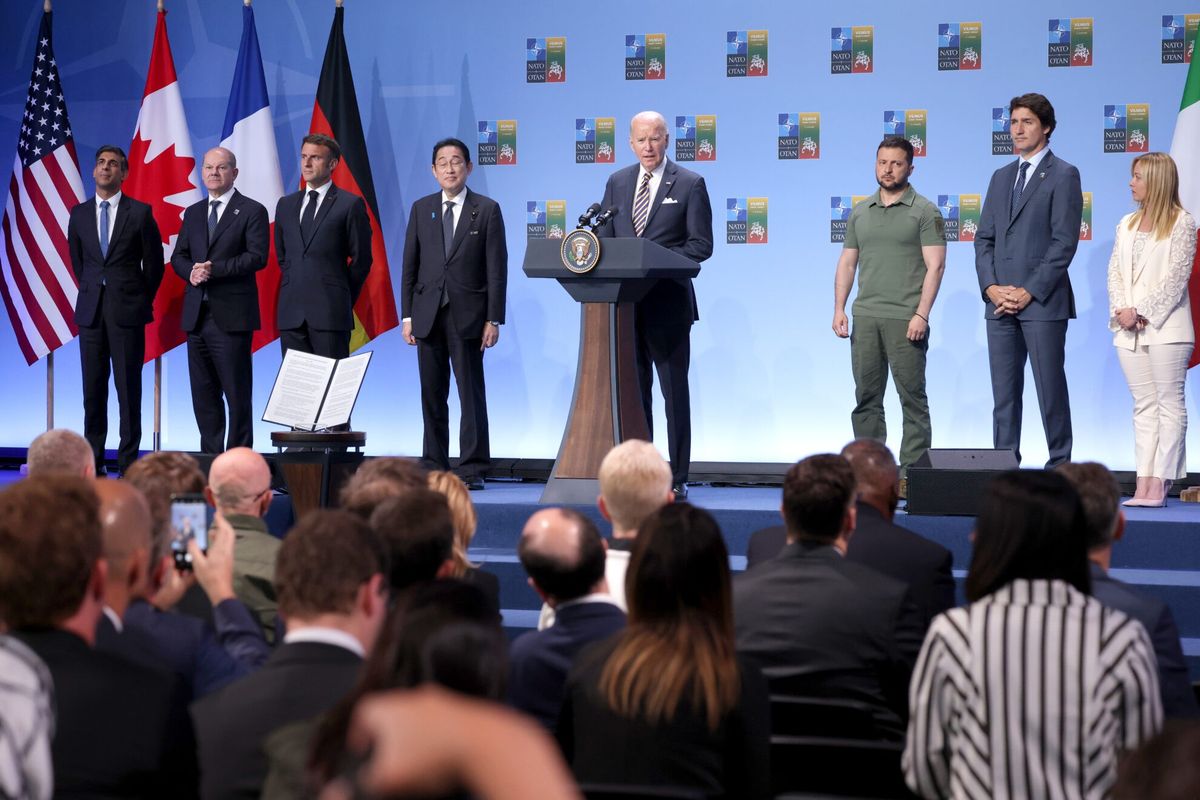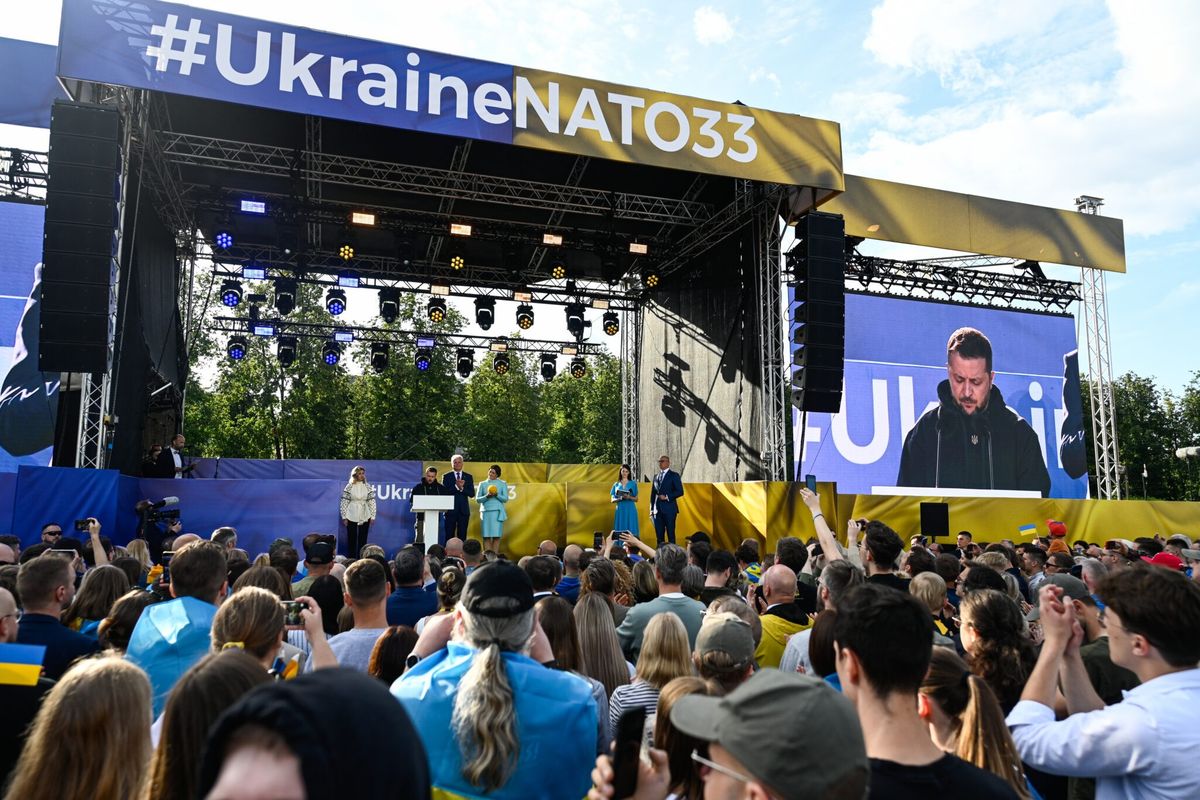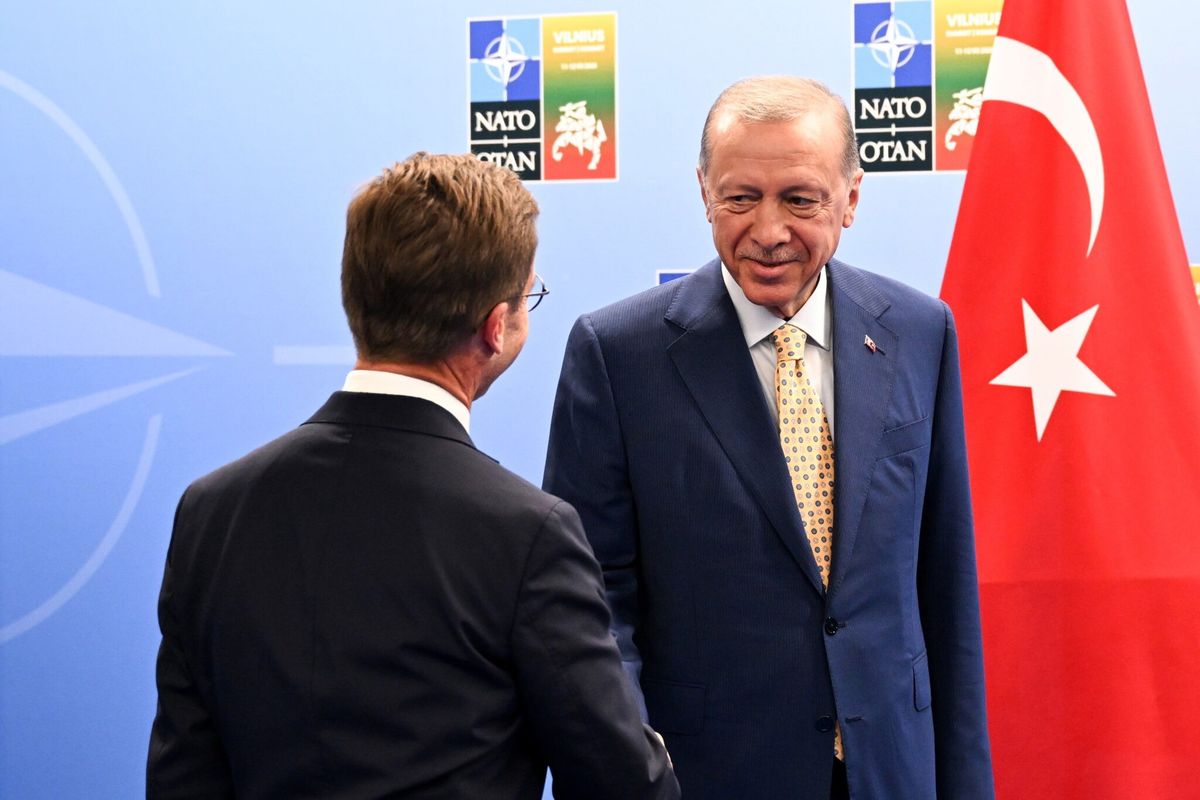SUBSCRIBER+ EXPERT INTERVIEW – When an armed force of Russian mercenaries seized command centers and advanced toward Moscow, the effects set off a chain of events that security analysts say will likely ripple across the globe for years to come.
The “ability to project power and influence will be fundamentally weakened by [Wagner mercenary boss Yevgeny] Prigozhin's efforts," noted Cipher Brief Expert Beth Sanner, former Deputy Director for National Intelligence. “This is going to be bigger than just what's happening on the ground in Russia. Those rings of implications spread very wide.”
Not merely with regard to a weakening of the Kremlin and its efforts against Ukraine, Moscow’s strategic partnerships across Africa, the Middle East, and Asia are widely thought to be undermined by the revolt, even though a Kremlin spokesman said Saturday that the criminal case against Prigozhin for mutiny would be dropped in exchange for the Wagner chief calling back his own troops and going to Belarus.
“After 23 years of unchallenged power, the emperor has no clothes,” said Sanner, noting how a Wagner force untethered from Moscow's tacit oversight, represents not only a fundamental change in Russia's ability to project power, but also an undermining of President Vladimir Putin's broader influence.
“He is no longer a person who cannot be challenged,” she said. Having said that, Sanner added, this "could be a linchpin that changes the course of the war in Ukraine."
The Cipher Brief spoke in-depth with Former Deputy Director for National Intelligence Beth Sanner, who also served as Presidential Briefer during the Trump Administration. The interview has been lightly edited for length and clarity.
Beth Sanner, Former Deputy Director for National Intelligence, ODNI
Sanner is a retired CIA officer with 35 years of national security experience, was Deputy Director for National Intelligence and the President’s intelligence briefer during the Trump Administration.
The Cipher Brief: Where does one even begin to assess what's taking shape and its consequences?
Sanner: It's really easy to get caught up in the tactical, the watching the movements. But I think we can step back and we can say that no matter what happens, there are strategic consequences to this. There's certainly some major strategic implications that I think we know already will take place. Putin, after 23 years of unchallenged power ... the emperor has no clothes. He is no longer a person who cannot be challenged.
That weakening of Putin in his position is very clear. We know that Prigozhin, even though he wasn't necessarily inner circle, was someone who could get an audience with Putin. He was one of the few people that reportedly went in and had a personal talk with him saying, "This war's not going well." This idea of truly someone from the very beginning of his career to now, and having been trusted. Maybe that's why Putin made this colossal error in judgment of not being able to see or foresee that he would really take these grumblings against the military and turn it into a direct action, this mutiny.
Prigozhin, whom Putin trusted, was among a very, very small group of people. That is now gone. Here we have this person that real experts on Putin talk about how he's become more isolated and more paranoid. The inner circle has shrunk, and his ability to have good information has been reduced, and that's one of the reasons why he made all the errors. And now here we are, another error in judgment based on perhaps the fact that he wasn't getting good information and that it was cognitive dissonance. Who could believe that Prigozhin would do this kind of thing? That also will affect Putin and his decision-making, no doubt in the future. We know that the Russian military will be weakened by this. Wagner was very isolated in what they were doing. But they were the only ones successful at anything in the past few months.
But the more fundamental thing is that we already know that there's bad morale. We already know that soldiers don't want to fight. We have lots of video evidence of that. If you are commanding these units on the ground, you don't know whether you can trust your people to not turn and run or not challenge and say, "This war does not make sense." I think that there are lots of ramifications we can think about. We could look back and this could be a linchpin that changes the course of the war in Ukraine. But we certainly also know that no matter what happens here, there's going to be global implications. There's going to be implications for the global south. Wagner is present and active in at least eight countries in Africa. They have been the primary means of Putin to project power and influence outside of the near abroad. That's not going to happen now.
Inevitably that ability to project power and influence will be fundamentally weakened by Prigozhin's efforts. Independent in using those African adventures as a means of becoming incredibly wealthy and powerful, but it was never outside of the imprimatur of the Russian government, never a 100% independent entity, and still an extension of the Russian government. Without that tether and that imprimatur from the Russian government, those enterprises don't operate like that. It could be a huge win for all of us, but it won't happen all automatically. This is going to be bigger than just what's happening on the ground in Russia. Those rings of implications spread very wide.
The Cipher Brief: Obviously, there's likely long been a gaming-out of this scenario within the Intelligence Community, having watched this very public confrontation between Prigozhin and different parts of Putin's government for months now. How would you evaluate that?
Sanner: I can't believe that Putin didn't shut him down. That was a misjudgment, loyalty misunderstanding of what the capacity of Prigozhin was or what his aims were. I am really starting to wonder, was this absolutely actually all planned out? His march on Rostov-on-Don was pretty organized, but now this convoy to Moscow ... I don't know. It seems like you could make the judgment that this was very organized and preplanned, and even that Prigozhin staged that attack on camp. Yes, we saw body parts, but there's a camp somewhere that has a bunch of miscreant convicts that were troublemakers anyway that he could have just sat there ... canon fodder. He could have staged that whole thing as a pretext to do this. Let's not forget who Prigozhin is. He is the master of deception. He ran and still does Russia’s Internet Research Agency (IRA). He's the number one entity that ran the disinformation campaigns in the 2016 election and continues today. Slightly different tactics and levels of importance, but this guy knows about deception.
Follow Cipher Brief CEO & Publisher Suzanne Kelly on LinkedIn and Twitter for exclusive behind-the-scenes images from The Cipher Brief’s Kyiv Economic and Security Forum.
The Cipher Brief: In that vein, how does the west evaluate these events in the context of both Putin and Prigozhin being seen as the west's adversaries?
Sanner: Remember that these guys don't have friends. We have friends. We have allies with a capital A and a lower A. Russia has partners. Russia has clients. Russia has partners in crime. But in any crime family, they can turn on each other at the drop of a hat when opportunity comes or it becomes inconvenient. Putin himself has to be looking over his shoulder about where do his partners in crime stand.
The Iranians didn't take a call from Putin, and they publicly put out a statement saying, "This is a Russian internal affair." Wow. That's different than what Erdogan said. Erdogan said, "We're all for Putin." Erdogan has his own interests in Turkey, of course, but I think that's really interesting. I'm sure the Middle East, if you're Assad or in Libya, where there are still Wagner troops in Libya, everybody's looking around and saying like, "Oh gosh, what does this mean for my interests?" It is not in China's interest for Russia to lose this war. Instability in Russia, that's bad. Let's remember that Russia and China were in a war. Let's remember that one of the primary things that drives China's policy toward North Korea is fear of instability there, the prospects of loose nukes, and the prospect of millions of North Koreans flooding over their border. Those kinds of things with Russia, same thing. Instability there is bad.
China's been very careful. And if you look at the statistics on energy trade between Russia and China, Russia has doubled their dependence on China as a source of their exports. China's dependence on Russia has only gone up 2%, from 14% to 16%, and they still get slightly more energy from Saudi Arabia. Very diversified. China has been worried about relying too much on Russia. All of these countries are going to be quite concerned. Some of them are not being that helpful, like Iran. These guys aren't friends.
The Cipher Brief: You mentioned loose nukes. That was something that immediately came to mind, especially with deployment of those tactical weapons in Belarus. How does that deployment now play out in the context of recent events?
Sanner: That is why you should not deploy. The intelligence community always worries about the dispersal of nuclear weapons just for this very reason, because you don't have opportunities for things to get out of control. What does loose nukes mean in a Russia context? This is not something I've thought about because it has not been something that is really in the realm of possible. If Putin died, there would be this competition between powerful different brokers and someone could get their hands on them. But in this case, I think it's more just the chaos of it. I think that this talk of an immediate concern about Putin using nuclear weapons, it a very low chance, but not zero. It's something people have to watch.
The Cipher Brief: The next question centers on Ukraine. How are Ukrainians expected to respond and potentially capitalize on this scenario, both in the short and long-terms?
Want to know what the top minds in cyber are most worried about right now? Save yourself a seat at The Cyber Initiatives Group virtual Summer Summit on Wednesday, June 28th.
Sanner: There’s a great meme showing a young Zelensky opening up a can of beer and sitting back and watching, and getting a popcorn bowl. In the long-term, this absolutely benefits Ukraine because Prigozhin, one of the closest people to Putin, and somebody who's fought on the front lines as a self-designated patriot, has publicly said that Putin's rationale for the war was false, and that there was no reason to go to war.
There are at least five battlefronts in this Ukraine war. There's 1.) [the actual] battlefield, 2.) influence operations, 3.) PSYOPs battle, 4.) economic, and 5.) political influence. In almost all of these different battlefields, Zelensky benefits.
Propaganda and PSYOPs, Ukrainians are winning that battle. They have the people in Belgorod, [Russia] right over the border with Ukraine, where actual pro-Nazi groups are conducting these operations. Drone operations against Moscow. There's a lot of fodder to be had now, and Prigozhin is putting it all out on Telegram himself, with psychological operations that undermine public confidence, but also undermine the Russian military morale. This helps Zelensky on the political war that, like the hearts and minds of the globe.
Economically, if Prigozhin and all these things start falling apart in, there's a lot of money that's going into Prigozhin's coffers, but it relates to the Russian government too, as well as sanctions.
And then on the battlefield, I think it will help. And they're not sitting there eating popcorn. They are all hands on deck. How do we exploit this opportunity that the military strategist Clausewitz always talks about, friction in warfare, fog and friction in warfare.
The Cipher Brief: If you're sitting atop intelligence circles in the United States right now, what are you doing to take advantage of some of these opportunities?
Sanner: I would certainly be communicating with of all my station chiefs in Africa and the Middle East. I would be thinking about this in terms of taking advantage of these global implications immediately. Time for another video, a recruitment video. I bet they're going to be in the studio making another recruitment video for Russians to join us in spying on Russia. Lots of opportunities. On the operational side, I see lots and lots of opportunities. On the analytics side, because this is a global implication thing, you've got everybody at work today. The pizza boxes are arriving at the gate as we speak.
The Cipher Brief is closely following events and will continue to bring you expert perspectives on what’s happening inside Russia and how it is impacting Moscow’s war on Ukraine.
Read more expert-driven national security insights, perspectives and analysis in The Cipher Brief because National Security is Everyone’s Business






